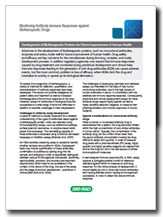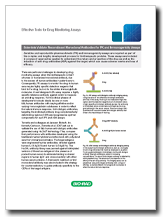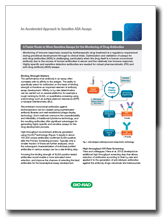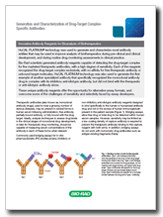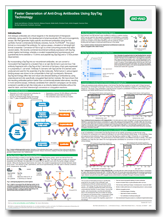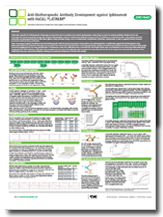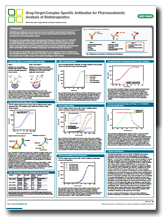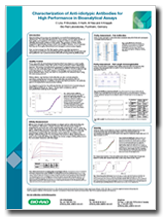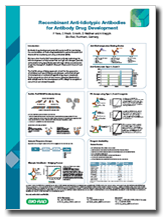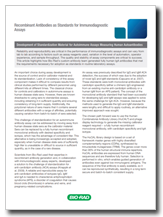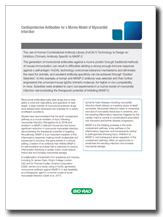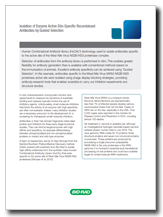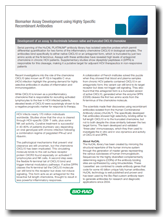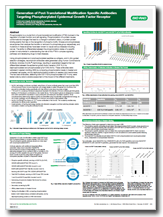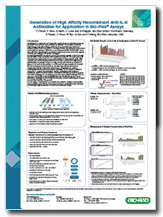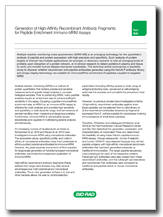Webinars, Videos and Technical Articles
-
Monoclonal Generation
-
Custom Recombinant Monoclonal Antibody Generation
- HuCAL Technology Explained
- HuCAL® Antibody Generation Process
- Custom Service Packages, Pricing and Ordering
- Application Resources and Technical Support
-
Webinars, Videos and Technical Articles
- Webinar: Overcome the Challenges of PK Assay Development Using TrailBlazer Antibodies
- Webinar: Generation of SARS-CoV-2 antibodies in multiple formats within four weeks
- Webinar: Recombinant Antibodies with SpyTag Technology
- Webinar: Transform bioanalytical assays with TrailBlazer Antibodies
- Webinar: Control your critical antibody reagents and avoid assay failure
- Webinar: Improve your antibody drug development assays
- Webinar: Optimize your assays using recombinant antibodies selected for desired affinity
- Webinar: The making of recombinant anti-idiotypic antibodies for high performance in bioanalytical assays
- Webinar: Human recombinant antibodies as positive controls and calibrators
- Webinar: How to overcome assay challenges using custom recombinant antibodies
- Webinar: Generation of high affinity recombinant antibodies for application in immuno-MRM
- Video: Generating anti-idiotypic antibodies for bioanalytical assays
- Video: Best practices for characterization and QC of anti-idiotypic antibodies for bioanalysis
- Video: Generation of drug-target complex specific antibodies
- Video: Antibodies for CAR-T cell therapy development
- Article: Monitoring antibody immune responses against biotherapeutic drugs
- Article: Effective tools for drug monitoring assays
- Article: An accelerated approach to sensitive ADA assays
- Article: Isolation of enzyme active site-specific recombinant antibodies by guided selection
- Article: Biomarker Assay Development using Highly Specific Recombinant Antibodies
- Article: Recombinant antibodies as standards for immunodiagnostic assays
- Article: High affinity antibodies for peptide enrichment immuno-MRM
- Article: Generation of antibodies against self-antigens
- Article: Generation and characterization of drug-target complex-specific antibodies
- Article: Antibodies for CAR-T Cell Therapy Development
- Poster: Faster Generation of Anti-Drug Antibodies Using SpyTag Technology
- Poster: CAR T cell analysis with modular antibodies
- Poster: Drug-Target-Complex Specific Antibodies for Pharmacokinetic Analysis of Biotherapeutics
- Poster: Characterization of anti-idiotypic antibodies for high performance in bioanalytical assays
- Poster: Recombinant anti-idiotypic antibodies for antibody drug development
- Poster: Generation of recombinant antibodies for Bio-Plex assays
- Non-Animal-Derived Antibodies
- TrailBlazer Antibodies
- SpyTag and SpyCatcher Products
- Rapid Custom Antibody Generation for SARS-CoV-2 Assay Development
- Bio-Rad AbD Serotec GmbH Custom Antibody Laboratories are Relocating
-
Custom Recombinant Monoclonal Antibody Generation
s
Simplified sourcing via Scientist.com
s
Custom antibody project inquiry form
A personal, no obligation quotation for a custom monoclonal antibody generation project
s
Contact our custom antibody specialists
Tel: +49 (0) 89 80 90 95 45
Fax: +49 (0) 89 80 90 95 50
Office: Bio-Rad AbD Serotec GmbH, Campus Neuried, Anna-Sigmund-Str. 5, 82061 Neuried, Germany
Resources supporting the use of HuCAL® recombinant monoclonal antibodies
Designed just for you
Discover the technology behind Bio-Rad’s custom recombinant antibodies.
Watch our latest video to see inside Bio-Rad’s custom antibody facility. Learn from antibody experts how your requirements for specialized custom antibodies can become a reality through the use of HuCAL technology.
Features
Drug development and bioanalysis
Webinars
Videos
Dr Christian Frisch explains how we generate anti-idiotypic antibodies for bioanalytical assay development using the HuCAL recombinant antibody technology; recorded at the EBF 8th Open Meeting.
Hear how Bio-Rad’s recombinant anti-idiotypic antibodies, made using HuCAL technology, fulfill the high quality standards demanded for use in assays to support the clinical evaluation of monoclonal antibody drugs; recorded at the EBF 9th Open Meeting.
Michael Schwenkert describes how high sensitivity PK assays can be developed using specialized drug-target complex specific antibodies, avoiding the ELISA bridging format; recorded at the EBF 10th Open Meeting (Barcelona, November 2017).
Michael Schwenkert talks about challenges associated with the development of CAR-T cell therapies that can be addressed using anti-idiotypic antibodies, and explains how Bio-Rad generates custom antibodies for this application (Barcelona, November 2018).
Ulrich Mayer describes how bioanalytical scientists can address the challenges of robust, selective and sensitive PK and ADA assay development through the use of customized anti-biotherapeutic antibodies generated by Bio-Rad (Barcelona, November 2019).







